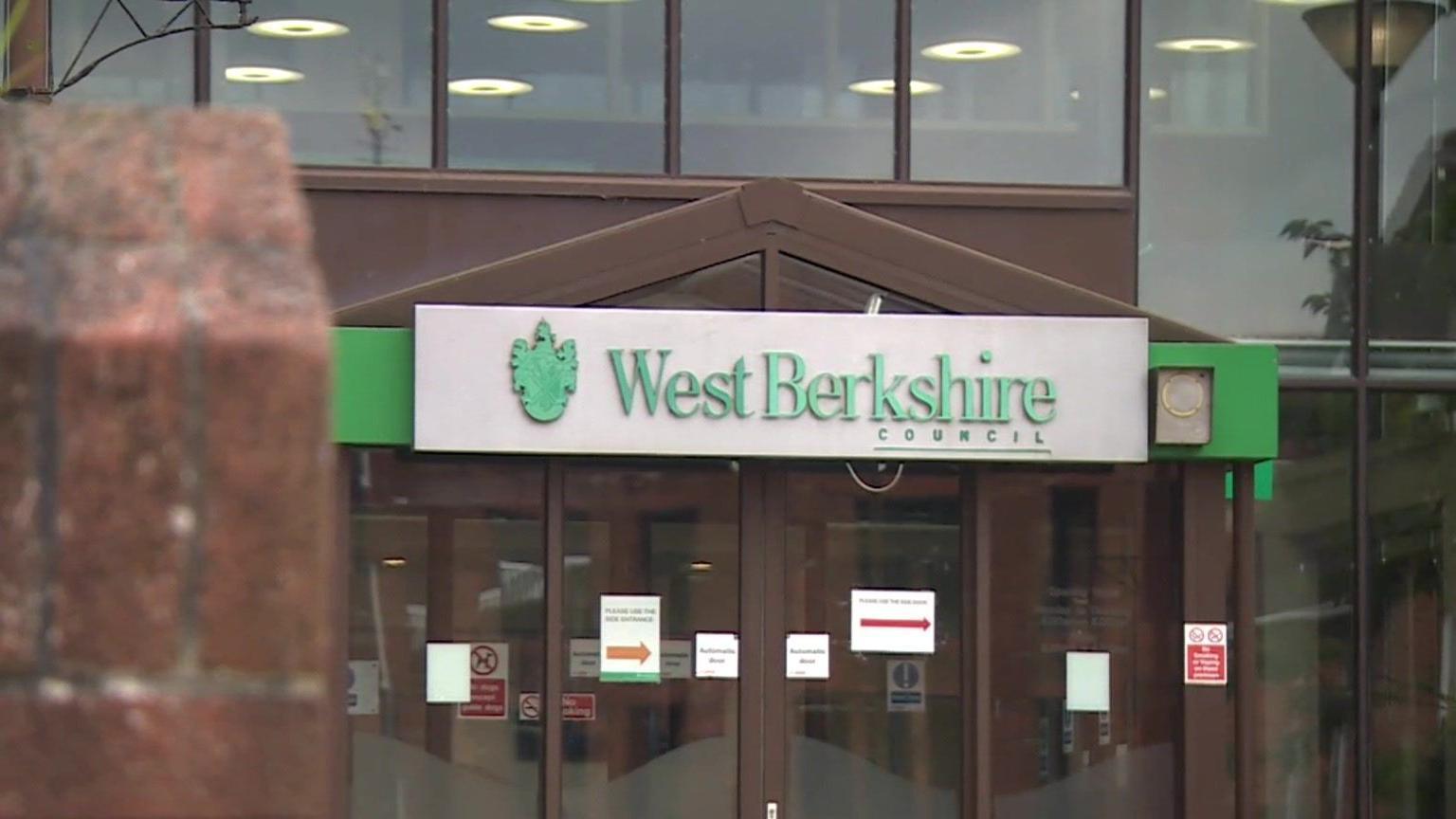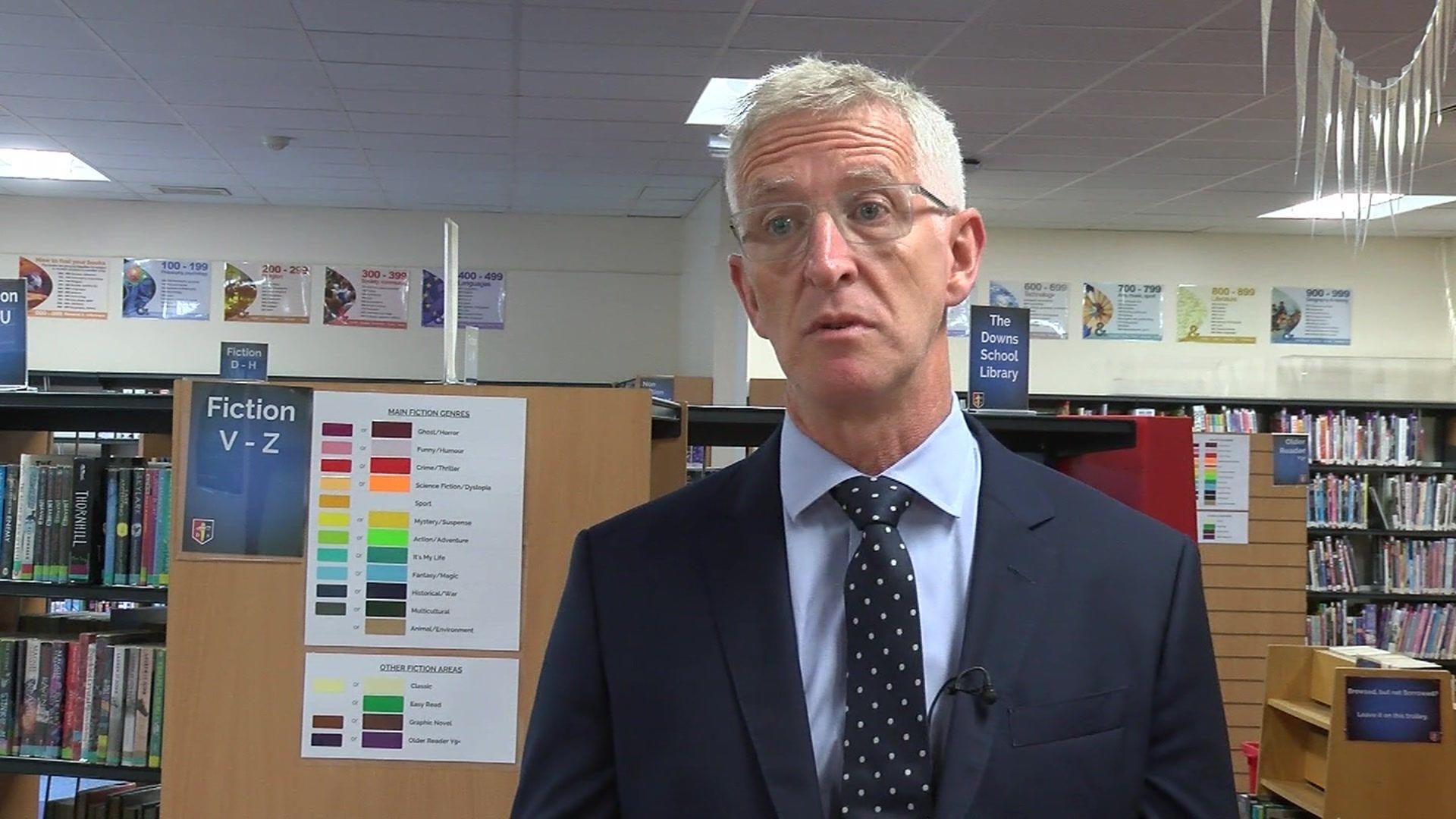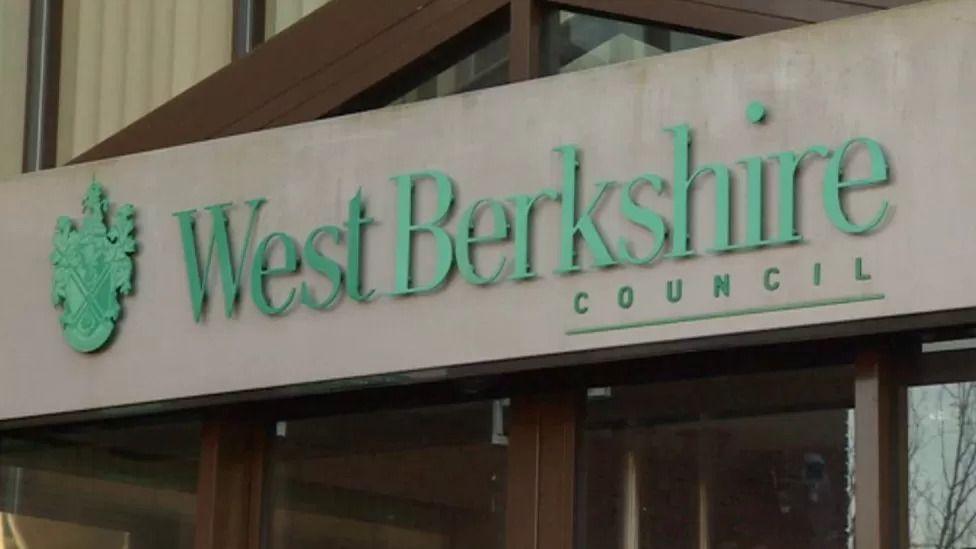Row erupts over council's school cash claw back

West Berkshire Council has agreed to remove about £2.85m from local schools' pockets
- Published
A row has erupted over a council's decision to repurpose funds raised by schools to help cover the rising costs of teaching pupils with special educational needs and disabilities (SEND).
West Berkshire Council (WBC) has agreed to remove £2.85m from the reserves of eight schools in the region.
Four of the schools involved have confirmed they are taking legal advice over the issue.
At a meeting on Thursday, council leader Jeff Brooks said the decision to hand over the money had been taken by the schools themselves, rather than the council.
More than two thirds (68%) of head teachers on the district’s Schools Forum backed the move.
Councillor Brooks said the authority would only take funds schools had raised through activities such as renting out their halls, and would not touch any fundraised money.

Chris Prosser is head teacher at The Downs school near Newbury
In a letter to parents earlier this week, Chris Prosser, head teacher of The Down’s School in Compton, said £490,000 of £700,000 the school had raised through fundraising activities was taken by the council.
"This money is self-generated income, raised by the hard work of the school, staff and parents," the letter added.
Funding gap
The council said it was £9m short of the funding it needs to pay for SEND provision this year and wanted to use some of the reserves local schools have built up in recent years to help plug the funding gap.
SEND services are expected to cost WBC £35m over the next financial year, £6m more than it budgeted for.
At the same time, schools maintained by the district have amassed reserves of more than £13.5m, the council said.
The authority added that one school alone had banked £3.8m.
West Berkshire Council not the only authority struggling to meet the rising demand for SEND provision.
A report published this week by the Local Government Association said: "Local authorities are projected to be spending £2 billion a year on SEND services by 2026, but will still face a £5bn funding black hole to meet demand that year."
Follow BBC South on Facebook, external, X (Twitter), external, or Instagram, external. Send your story ideas to south.newsonline@bbc.co.uk, external or via WhatsApp on 0808 100 2240, external.
- Published25 July 2024

- Published23 July 2024
